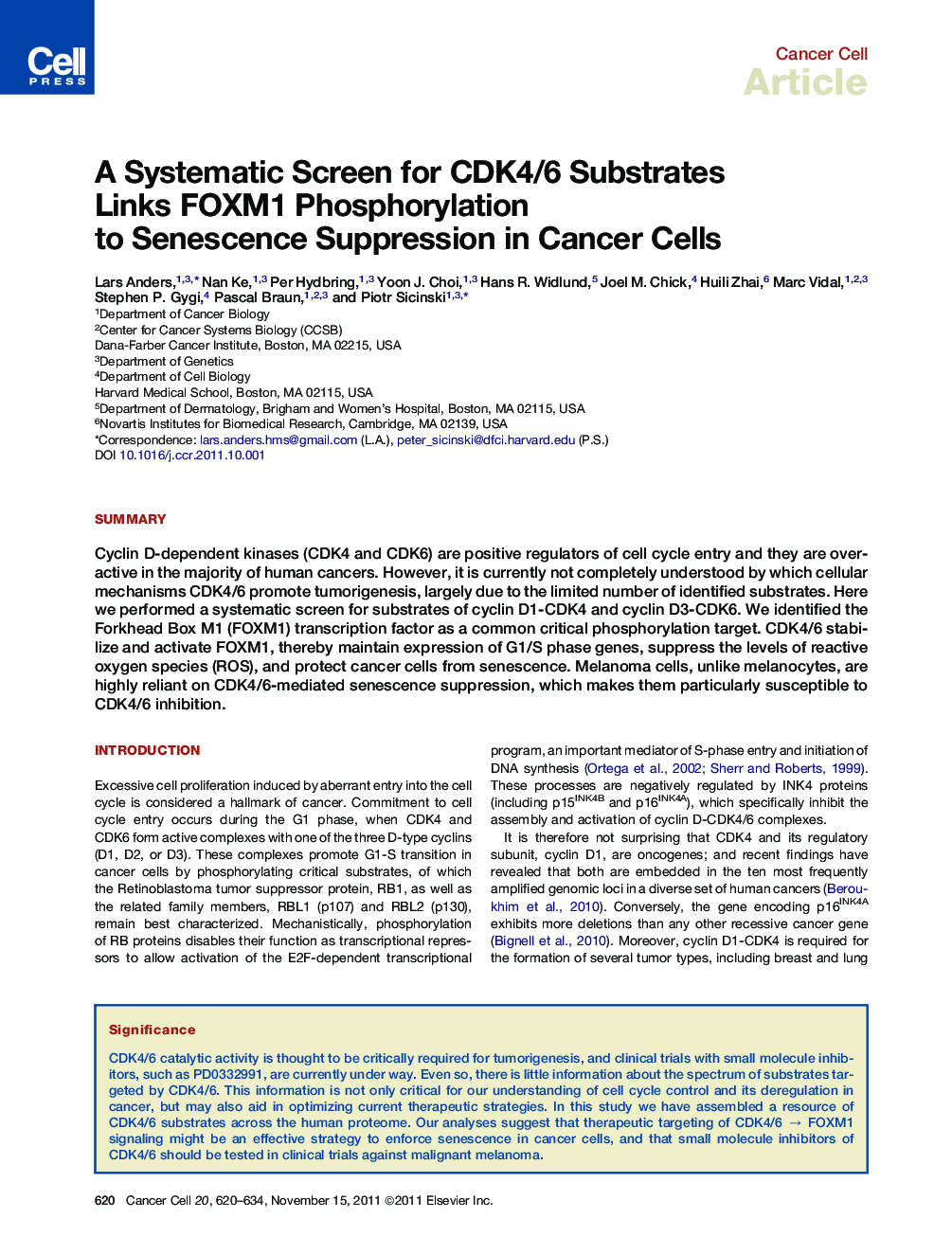| Article ID | Journal | Published Year | Pages | File Type |
|---|---|---|---|---|
| 2107376 | Cancer Cell | 2011 | 15 Pages |
SummaryCyclin D-dependent kinases (CDK4 and CDK6) are positive regulators of cell cycle entry and they are overactive in the majority of human cancers. However, it is currently not completely understood by which cellular mechanisms CDK4/6 promote tumorigenesis, largely due to the limited number of identified substrates. Here we performed a systematic screen for substrates of cyclin D1-CDK4 and cyclin D3-CDK6. We identified the Forkhead Box M1 (FOXM1) transcription factor as a common critical phosphorylation target. CDK4/6 stabilize and activate FOXM1, thereby maintain expression of G1/S phase genes, suppress the levels of reactive oxygen species (ROS), and protect cancer cells from senescence. Melanoma cells, unlike melanocytes, are highly reliant on CDK4/6-mediated senescence suppression, which makes them particularly susceptible to CDK4/6 inhibition.
► Assembly of an in vitro CDK4/6 substrate resource across the human proteome ► FOXM1 phosphorylation by CDK4/6 results in protein stabilization and activation ► FOXM1 is critical for CDK4/6-mediated cell cycle entry and senescence suppression ► CDK4/6 blockade in melanoma cells leads to FOXM1 degradation and massive senescence
